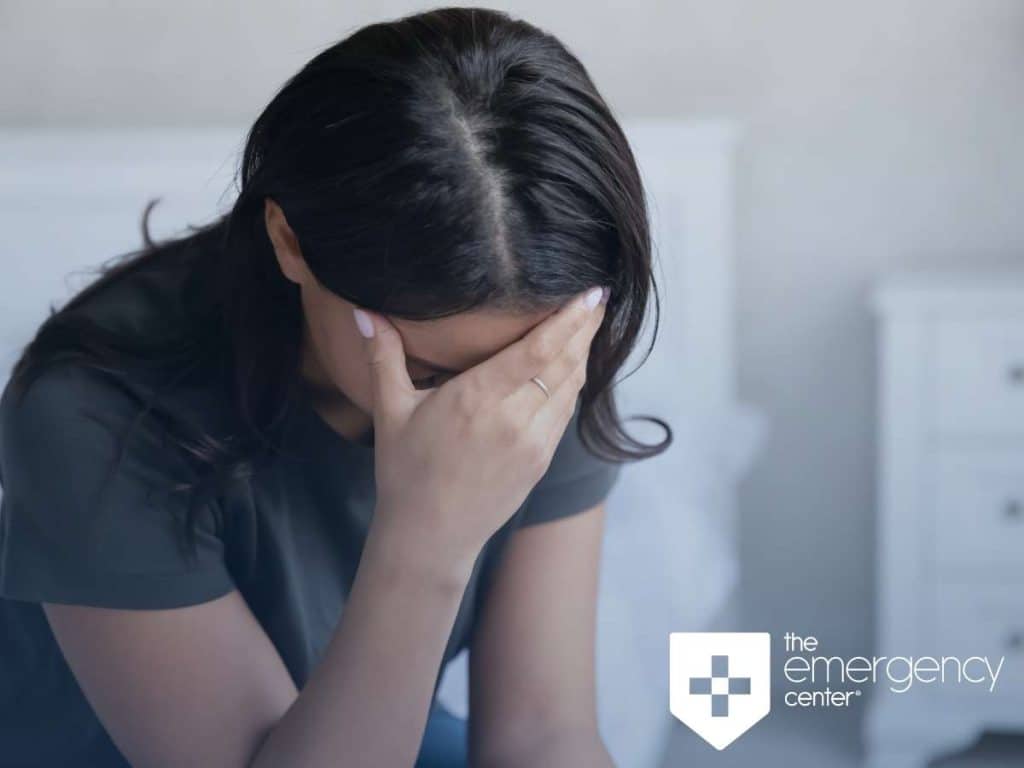Can Stress Impact Your Overall Health?
Understanding How Stress Affects Your Health, What Causes It & How To Manage It
Dealing with stress is a part of everyday life and no one is immune from it. While some people may experience more stress than others, everyone can agree that it causes anxiety and can result in long term health conditions. Providing people with information about stress and how to handle it is very important to us. Everyone has anxiety, and nobody is immune to it. Roughly 77% of people develop physical health problems after too much exposure to stress, and 73% of people claim it impacts their mental health. About one-third of Americans claim to have extreme stress.

Stress Is A Normal Biological Response
Stress is the body’s natural reaction to harmful situations that increase heart rate, blood pressure, and anxiety. Stress also tightens muscles and increases breathing rates. This reaction is part of a chemical reaction in the body that helps a person respond to a potential threat or injury.
The Negative Impact Of Stress On Your Body
Physical stress makes it harder for the immune system to function correctly, which increases the risk of infections and illnesses. Too much pressure can physically slow down the way the body functions as a whole. Stress can impact sleeping patterns, or can even cause the development of insomnia-like symptoms. Rapid heartbeat and high blood pressure caused by excessive stress can also lead to chest pains, panic attacks, or can even result in a heart attack. Overexposure to stressful situations makes sufferers extremely lethargic, making it harder to perform everyday activities.
Stress Can Seriously Affect Your Mental Health
Too much stress also affects a person’s overall mood, energy levels, and ability to focus on daily tasks. It also makes it more likely for sufferers to develop mental disorders and mood disorders. Stress has been known for years to trigger depression, causing a sufferer to have a lingering lack of self-worth. Feelings of depression can also branch out into feelings of loneliness, a lack of control, and makes a person feel overwhelmed to an unnecessary extent. These people are also known to isolate themselves or exhibit other antisocial behaviors.
Other cognitive symptoms from too much mental stress also affect sufferers. Those exposed to too much stress may often find themselves worrying more than others. Their memories aren’t the same, either. Too much mental stress affects memory and causes racing thoughts that seldom take shape. Organization becomes difficult, and the lack of focus can result in poor judgment.

Useful Methods To Cope With Stress
Some people may find themselves so overwhelmed with stress that they may see no possible way to manage it. Fortunately, there are many ways to manage and even prevent moments of intense anxiety.
Medication
While it may not exactly be the first choice for most, doctors can now prescribe certain medicines that lower anxiety and relieve stress. Because every anxiety disorder is different, doctors will evaluate patients to determine which medication best suits their needs.
Meditation
Many people take time out of the day to meditate. Meditation is one of the easiest and most effective ways to address and manage stress. It is also one of the cheapest ways because the only thing required is silence and about fifteen minutes of free time.
Yoga
One increasingly popular way to relieve stress is through yoga sessions. Yoga is a great activity that benefits both the mind and body. Yoga is a mental and physical therapeutic practice involving breath control, meditation, and specific body postures. It has become common knowledge that is an effective form of relaxation.
Diet
Certain foods and beverages can serve as triggers for stress and anxiety. For better stress management, limit or avoid caffeinated drinks. Caffeine is a stimulant and therefore, can cause added stress for someone that has a hard time with anxiety. Alcohol also affects stress by interfering with neurotransmitters and endorphins, which regulate how the mind functions. Balanced diets are best for keeping stress levels under control.
Exercise
After a great workout, people have a sensational feeling that they’ve accomplished something great. This is no coincidence because the brain releases stress-fighting endorphins to calm the body down after an intense workout at the gym. It is also necessary to get a good sleep so that the mind can regenerate.
A Local Freestanding ER For Stress-Related Emergencies
Stress is inevitable. It is one of the many parts of life that people could do without sometimes. However, when appropriately managed, stress also braces people for the challenges that they face every day. By taking the time to stay mindful of problems and understanding that some things are beyond control, stress management can slowly become less of a challenge and more of a habit. However, if you feel that you can’t manage stress at all and you’re unable to perform any daily tasks, we’ll be ready to help you at The Emergency Center‘s 24-hour location.

The Emergency Center
San Antonio
11320 Alamo Ranch Pkwy
San Antonio, TX 78253
Phone: 210-485-3644
Conroe
4019 I-45 N,
Conroe, Texas 77304
Phone: 936-247-9457
